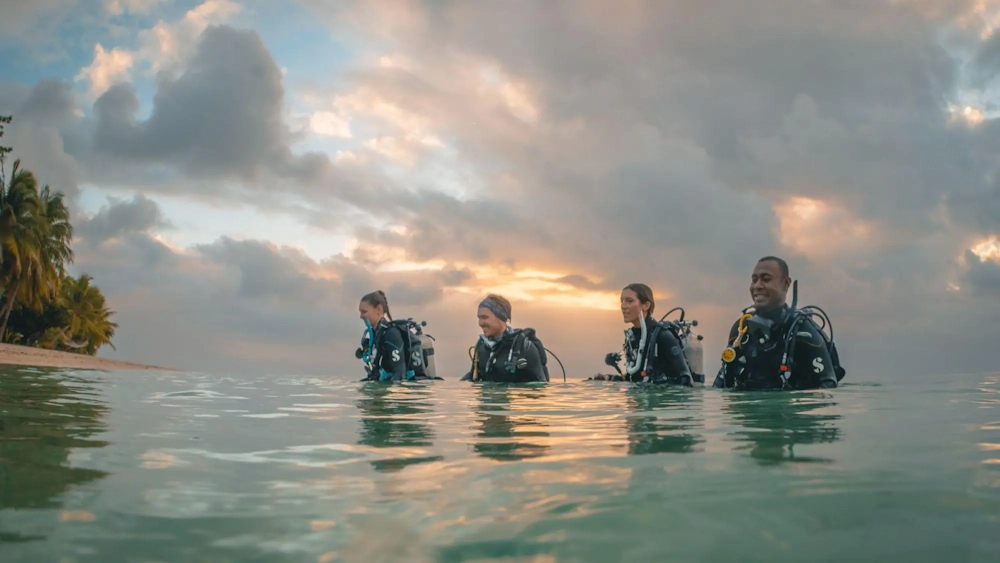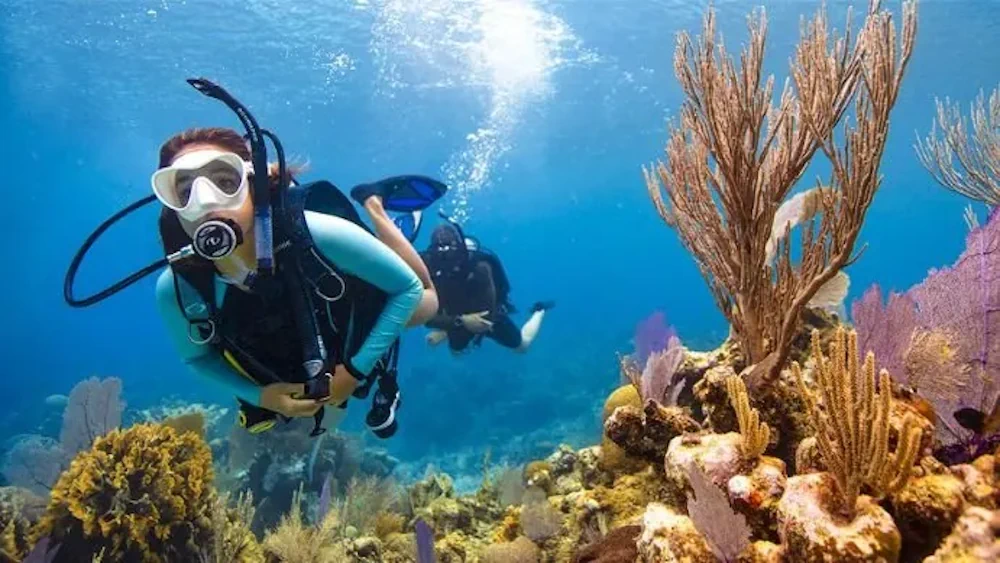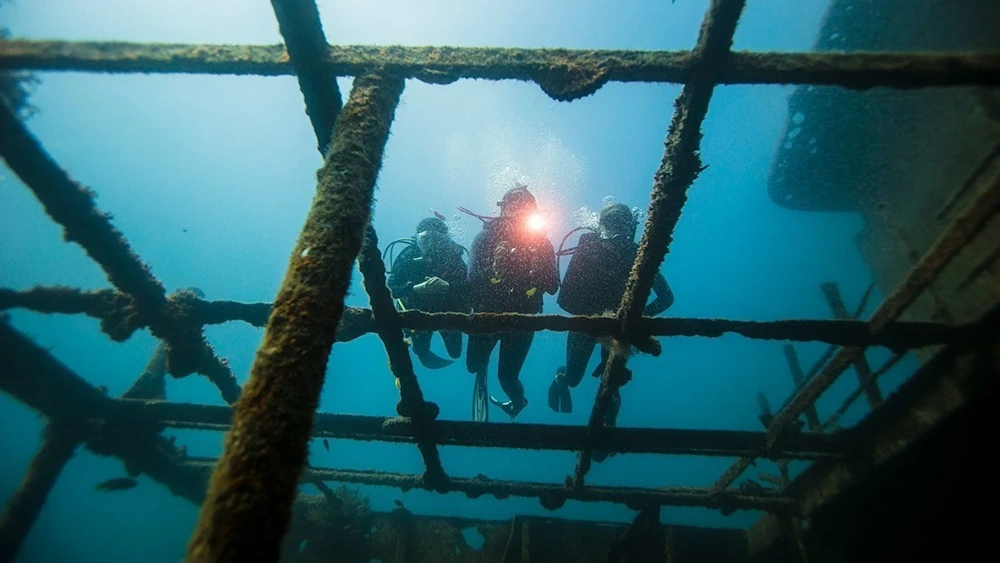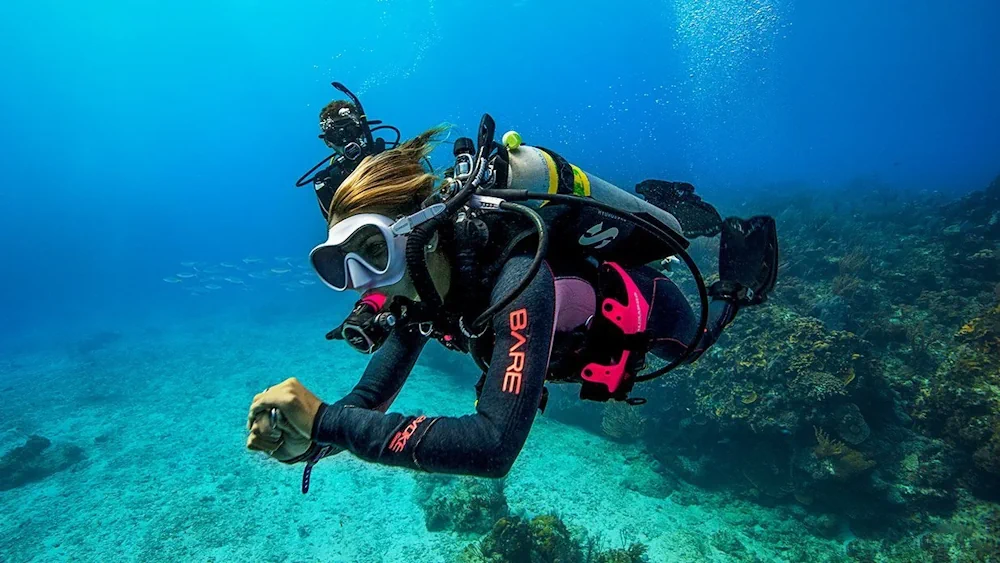PADI Review: A Look at the World’s Leading Scuba Diving Organization
20% Off On All Limited Edition Certification Cards
×
15% Off Online Sales
×Emergency O2 Provider and Drift Diver eLearning Courses
The Professional Association of Diving Instructors (PADI) stands as the world’s most recognized and respected scuba diving training organization. Since its establishment in 1966, PADI has issued more than 30 million certifications worldwide. It operates in over 180 countries, with thousands of affiliated dive centers, resorts, and more than 128,000 professional members globally. This immense reach has made PADI a household name for anyone interested in underwater adventures.
PADI’s mission goes beyond diver training. It aims to foster environmental stewardship, create a global community of ocean advocates, and uphold safety and high training standards. Through its diverse educational offerings, innovative platforms, and conservation partnerships, PADI shapes the underwater world for both beginners and professionals.
A Global Leader in Scuba Diving Education
One of PADI’s defining strengths lies in its vast global presence. With over 6,600 dive centers and resorts affiliated worldwide, aspiring divers can access standardized training and support no matter where they are. This global network ensures that a PADI certification is not only recognized internationally but also maintains consistent quality and credibility.
PADI’s curriculum follows a structured yet flexible approach. Every course builds on foundational knowledge while allowing students to progress at their own pace. From novices to seasoned divers, PADI provides pathways that grow skills, enhance confidence, and expand diving possibilities.
Additionally, PADI’s multilingual resources make diving accessible to people from diverse linguistic backgrounds. The organization continuously updates its materials to incorporate the latest diving science, safety practices, and environmental considerations.
Diverse and Comprehensive Course Offerings
PADI offers an impressive array of scuba diving courses tailored to different experience levels, age groups, and diving interests. Below is an overview of their key offerings:
1. Entry-Level Certifications
- Open Water Diver: This is PADI’s flagship beginner course. It covers fundamental skills, safety procedures, and theoretical knowledge required to dive independently (with a buddy) to a maximum depth of 18 meters (60 feet). The course involves confined water sessions, knowledge development modules, and four open-water dives.
- Scuba Diver: A subset of the Open Water Diver course, this certification allows diving under professional supervision up to 12 meters (40 feet). It’s ideal for travelers short on time or those preferring guided experiences.
2. Continuing Education Courses
- Advanced Open Water Diver: Designed to enhance diving skills, this course includes five adventure dives, such as deep diving, underwater navigation, and optional specialties like wreck diving or peak performance buoyancy.
- Rescue Diver: Focusing on emergency management and problem-solving, the Rescue Diver course prepares divers to handle stressful underwater situations and assist others in distress.
3. Specialty and Technical Courses
PADI’s professional track transforms passionate divers into industry professionals:
- Divemaster: This certification qualifies divers to assist instructors, guide dives, and supervise activities.
- Open Water Scuba Instructor: Enables teaching scuba courses independently.
- Master Scuba Diver Trainer and other higher professional ratings expand instructional specialties.
These courses ensure that PADI-trained professionals carry consistent teaching methodologies and uphold safety worldwide.
Innovative Learning Through PADI eLearning
PADI has embraced modern education trends through its eLearning platform, which allows students to complete the theoretical parts of many courses online. This system offers flexibility to learn at one’s own pace, eliminating the need to spend vacation time inside a classroom.
Learners can access interactive materials from their computers, tablets, or smartphones. Once the online segment is complete, they proceed with the in-water portion at a PADI Dive Center or Resort. This hybrid approach blends convenience with hands-on skill development.
Furthermore, eLearning extends to professional courses and specialty certifications, making education accessible even to busy schedules.
Environmental Commitment: PADI AWARE Foundation
Beyond diving instruction, PADI has made ocean conservation a cornerstone of its identity. The PADI AWARE Foundation, the nonprofit arm of the organization, empowers divers to take action for marine conservation globally.
Key initiatives include:
- Dive Against Debris®: A citizen science program encouraging divers to collect and report marine debris.
- Marine Species Protection: Campaigns supporting shark and ray conservation, marine park protections, and endangered species safeguards.
- Coral Restoration: Collaboration with global partners to restore coral reefs and protect fragile ecosystems.
PADI integrates conservation education into its core courses. Divers are encouraged not just to enjoy the ocean, but to actively protect it.
Exclusive Perks with PADI Club Membership
Joining PADI Club offers extra value for divers who want ongoing benefits. Membership includes:
- 20% off selected eLearning courses and specialty certifications.
- Access to the ReActivate® Scuba Refresher to refresh skills after a diving break.
- Digital certification cards for convenience and environmental savings.
- Annual subscription to Scuba Diving magazine, featuring dive travel inspiration, gear reviews, and expert advice.
- Conservation contributions from membership fees, supporting marine protection efforts.
This membership suits divers who value continuous learning and being part of a global community.
Best-Selling PADI Courses and Programs
Among PADI’s vast catalog, certain courses stand out as top choices globally:
The most popular entry point for new divers, with millions of certifications worldwide.
Favored by divers eager to explore deeper sites and broaden their skills.
Enriched Air Diver (Nitrox) Specialty
A bestseller among divers seeking longer bottom times and reduced nitrogen absorption.
These courses not only equip divers with essential skills but also unlock access to a wider range of dive sites worldwide.
Pros and Cons
Pros
PADI certifications are accepted at dive shops, resorts, and liveaboards globally. This makes it easier to travel and dive internationally without retraining.
PADI offers structured progressions from beginner to professional, including specialty programs that cater to varied interests like wreck diving, photography, or technical diving.
Through eLearning and modular structures, PADI accommodates busy schedules and different learning styles.
PADI embeds conservation into its educational framework, creating eco-conscious divers from day one.
The network of instructors, dive centers, and clubs provides continuous mentorship and community engagement.
Cons
PADI courses may be more expensive than equivalents from smaller training agencies, partly due to branding and material fees.
Some divers feel that PADI’s global standardization limits instructor flexibility or customization in training approaches.
Critics argue that PADI encourages continuous certifications instead of prioritizing dive experience as much as other agencies.
Each drawback varies depending on local instructors, dive center policies, and personal preferences.
Final Thoughts
For aspiring and experienced divers alike, PADI remains a powerhouse in scuba education. Its globally recognized certifications, robust learning resources, and unwavering focus on safety position it as a trusted name in diving.
Although costs and standardization may be concerns for some, the advantages of international recognition, structured education, and conservation alignment often outweigh these downsides. PADI opens the door to adventure, learning, and stewardship beneath the waves.
Whether seeking a lifelong hobby or professional diving career, PADI offers pathways that foster confidence, competence, and community. For those ready to “seek adventure and save the ocean,” PADI delivers on both promises.






